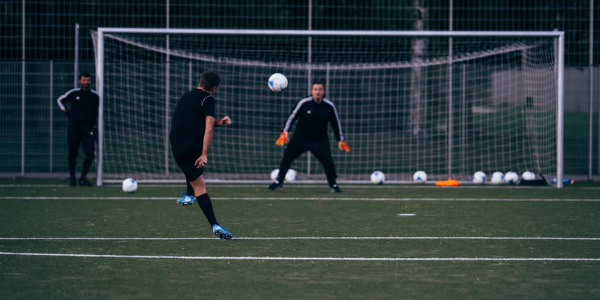
What are the differences between superstitions and routines?
A superstition can be irrational because it’s based on luck. Another way of putting it is when athletes believe they will achieve positive results by engaging in a random act.
Examples of athlete superstitions include:
* MLB pitcher Steve Kline never washed his hat for fear of washing away his luck.
*NHL goalie Ed Belfour would not allow teammates to touch his equipment. Belfour’s superstition was so entrenched he would yell at teammates who came close to his equipment.
*NBA Hall of Famer Michael Jordan wore his college practice shorts underneath his game shorts.
Most of the time, a superstition is based on luck only – what’s worked in the past for athletes. Athletes stick with what’s worked for them.
Each of these athletes believed they needed to perform their ritual to perform their best.
Pregame routines are quite different. Routines are a series of steps performed to prepare your mind and body to compete. Routines are a form of mental and physical preparation and help you get your game face on.
Routines can be executed before a game or, preshot routines, during a game…
Pregame routines are essential for peak performance. For example, you follow a series of steps, such as listening to music, stretching, visualizing, warming up, etc.
When you perform this series of steps consistently, you will minimize distractions, keep your body relaxed, and feel prepared for the start of the competition.
Each step narrows your focus so that you feel mentally and physically ready to go by the start of the competition.
You can use in-game routines to reset for the upcoming moment. In-game routines can be utilized between baseball pitches, before a tennis serve, and before putting a ball in golf. Most stop and go sports have a time to perform a routine.
For example, Philadelphia Phillies outfielder Bryce Harper has a specific prepitch routine while in the batter’s box. Harper has repeated the same routine for years which helps him stay composed and focused at the plate.
HARPER: “I think once I got into college, I had that little routine of what I do in the box, I get in, dig in, scrape the dirt. Then I touch out, touch in, then touch out again. Then I hit the front of my foot, like my big toe, pretty much. Then I go up [with the bat], look at the pitcher and come back. It actually was a little bit longer in college, but I shortened it up – It’s just something I’ve always done, something I’m comfortable with.”
Harper includes biting his jersey by his right shoulder in his routine as a reminder to keep his front shoulder square to the pitcher longer.
HARPER: “I’ve been doing that my whole life. If I fly open, that’s when I struggle. If I keep in, that’s when I do well.”
Routines have many purposes, all of which help an athlete become immersed in the moment and focused on the task at hand.
Mental Keys for a Warmup Routine
*Know what steps help you feel mentally and physically prepared to compete
*Perform the routine consistently and avoid changing it often–or searching for the perfect routine.
*Consistently apply your routine in competitions and as a warmup.
*Make sure your routine includes steps you would take with the mental game, such as letting go of expectations before you compete.
Related Sports Psychology Articles
- The Mindset to Perform at a Higher Level
- Having Fun While Performing at Your Best
- The Importance of Mental Toughness
*Subscribe to The Sports Psychology Podcast on iTunes
*Subscribe to The Sports Psychology Podcast on Spotify
Download a free sports psychology report to improve your mental game!
Learn more about our one-on-one mental game coaching.

The Relaxed Athlete
You can possess all the physical talent in the world, the best equipment money can buy, and train harder or longer than anyone else in your sport or on your team, but if self-doubt enters your mind prior to competition, you simply will not realize your true potential in sports.
The Relaxed Athlete” audio and workbook program teaches you mental strategies to develop a focused and confident pregame routine for a poised and relaxed mindset. Learn how to get your mind right by overcoming pregame anxiety and worry.
